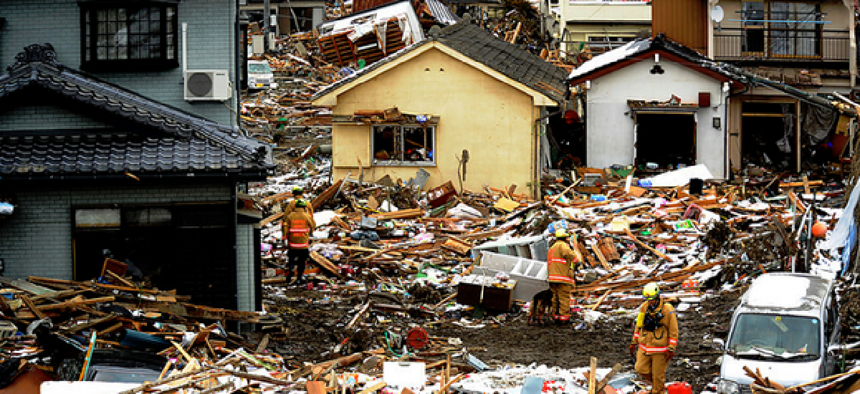6 big data projects to aid disaster response

U.S. and Japanese researchers will partner to improve big data collection and analysis.
Advances in IT are providing new opportunities to improve disaster management. The combination of powerful computer systems and networks that include sensors, smartphones and cyber-physical systems is creating massive data streams that can help decision-makers during disasters.
At the same time, these systems need to be reliable and responsive enough to ensure that the real-time data they collect and process continues seamlessly during disasters.
To address this issue, the National Science Foundation and the Japan Science and Technology Agency announced a joint funding program to support research that leverages big data and analytics to transform disaster management. If big data and analytics are to be used, NSF said, updated methods to “analyze large, noisy and heterogeneous data in order to facilitate timely decision-making in the face of shifting demands,” are necessary.
The six funded joint US-Japan research projects are:
Human-Centered Situation Awareness Platform for Disaster Response and Recovery
Researchers at the University of Southern California and the National Institute of Informatics in Japan will collaboratively design a computer platform that decision makers can use during disasters to analyze incoming data and coordinate responses.
Data-Driven Critical Information Exchange in Disaster-Affected Public-Private Networks
Florida International University and University of Tokyo researchers will design context-aware and user-specific information delivery systems that could be deployed during disasters to supply accurate information to citizens.
Efficient and Scalable Collection, Analytics and Processing of Big Data for Disaster Applications
Researchers from the Missouri University of Science and Technology and Osaka University in Japan will collaborate to develop new methods to compress, transmit and query data from sensor networks.
Disaster Preparation and Response via Big Data Analysis and Robust Networking
Working together, researchers from Arizona State University and Japan's National Institute of Information will explore resilient networks, social media mining and information dissemination during disasters.
A Big Data Computational Laboratory for the Optimization of Olfactory Search Algorithms in Turbulent Environments
Researchers at Johns Hopkins University and the University of Tokyo will collaborate on the development of new olfactory search algorithms that use sensors to identify sources of pollutants or other agents released in the air or sea.
Dynamic Evolution of Smartphone-Based Emergency Communications Networks
Researchers from Temple University and Japan's University of Aizu will collaborate to design smartphone-based ad hoc emergency networks that can evolve as a disaster unfolds.
NEXT STORY: FAA’s ERAM takes off





